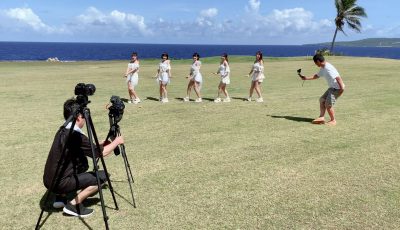IDES
In the old Roman calendar, the middle of the months of March, May, July, and October, 15th day, is called “Ides” from which other dates were calculated. The most famous in western literature is the Ides of March when Julius Caesar was cut down at the Roman Senate; he was getting too popular and turning into an imperial force and the consequent style of a dictator, which the democratizing senators would rather not have in their Forum.
It was in the “ides” of June that someone lifted our backpack with all electronics and cash after an aborted turnaround when Narita refused to board me on a plane to China though I was holding a boarding pass UA issued on Saipan. It appears that my permanent residency visa in China expired; I thought I could apply for a new one in Shenyang where I was headed like Chinese nationals do when they come in at the Saipan airport. It was not the case so I kept my meager resource out of spending it in Tokyo to get the visa (five days in Tokyo is not cheap) and headed back to the Marianas.
Tired, I spent the night in a San Isidro beachfront only to be divested of my belongings in the night.
Julius’ Ides in Europe pushed folks into the edges. Trained to be at the “cutting edge of history, the wind blowing wildly on our faces,” it drove folks to be first on anything. To lead upfront is to be in a sought-after status or position. Numero uno, o nada, is every person’s slogan.
The “ides” is the middle ground, the invisible pivot point of the balancing yin-yang. In the structure of the human brain, the medulla oblongata serves the five senses; the cerebellum nurses the feelings and thread lightly on the balance before the cognition goes wildly with individual thought and societal wisdom. The ides favors the cerebellum that digs into the depth of feelings and seeks balance in profundity rather than extremes.
The loss of the bag did make me cry to salve the pain.
The culture of the Far East is not about docility but of abject surrender to the screaming need and the required task of the moment; it is wild at heart but disciplined in the mind; its art is seen in the canals and gardens of Suzhou and Hangzhou, and the rock gardens and countryside of Japan. Nippon takes its discipline to its art, while Hangul takes its art into its disciplines; the Zhougguoren (Zhong = middle, ren = people) are the people of the middle. The history of the Middle Kingdom is a way of narrating the journey of the Zhongguoren, not on the extreme, neither first, or last, but on the balance, right down the middle.
We stereotype. “Ides” is a position in the middle, and it was once a term used to describe the people of Vietnam, Mongolia, and some areas of central Asia, but primarily Japan, Korea, and China in current political terms.
We shan’t quarrel with geography as boundaries have become politicized rather than as bounded by familiar geographical terrain, but we are mapping the geography of the mind, a cultural understanding on life as lived in the balance rather than sought and fought after in the extreme. For many of us, the balancing act is “foreign” as the striving to be ahead, to be prized and awarded for achievement and effort, the rule of human existence.
The balancing act of the yin-yang is reduced to being simply an ornamental décor to many, an esoteric symbol of the underground, but something about the Ides of June beckons me again for the necessity of balance in life, natural in the brain, but relegated to the practitioners of Taek Kwando and Jujitsu, rather than a necessity in the daily life in Saipan.
It finally does not matter. In the Ides of July, we are first to forsake the mythology extreme distress, replaced by the reality that a month later, other than the bag and my passport thrown into someone’s trash bin, the rest is irretrievably gone.
To use an old metaphor of looking upward to the heavens, we let sunshine and rain fall on the good and the ungodly! That’s the way life is.
Where I live, a camera caught a young boy entering one of the dwellings and counting off his loot. The police officer was aghast to discover who the young person is, newly released out of juvenile jail. The young guy is back to incarceration. Where the young man lives, the cop revealed, the use of meth is the highest on island. We do not wonder why the young man steals.
The choices we make daily are hardly abstract. Yes, we choose, but sometimes it is between good and better, or between bad and worst. Choice is the constant, not the strict division of life into two opposite camps.
The Ides is the point in the middle where one is invited to park a fundamental stance, the pivot point between the “not yet” and the “no longer.” It is the radical indefinite middle that is proposed.
I take the beachfront loss as a relationship to life, the victories and defeats of the past, the mystery and defiance of its future, and the awe-full wonder of its present.
Time to take the whole shebang, shake the dust off our feet, and move on.



























